Israeli startup creates cell-free hyaluronic acid
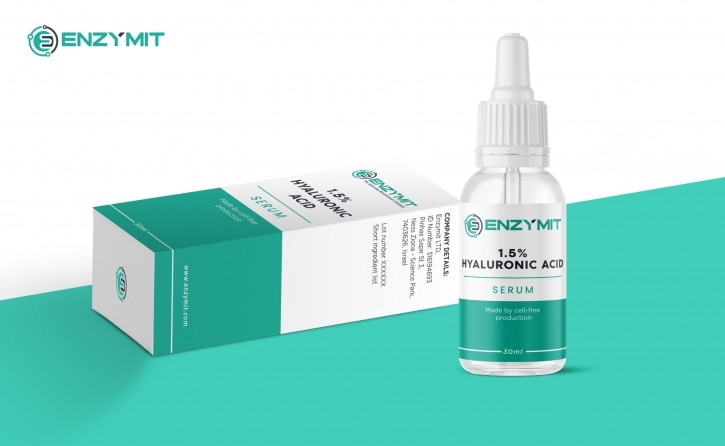
Enzymit, a biochemical startup that specialises in developing cell-free enzymatic manufacturing technology, has announced it has synthetically produced hyaluronic acid (HA), a naturally occurring biopolymer found in the skin, joints, and connective and neural tissue that is widely used in skincare products.
The company, which was founded in 2020 by experts in computational protein design, bioengineering, and molecular biology, says that the HA can be used in various cosmetic, aesthetic, and therapeutic applications and that its cell-free manufacturing process reduces much of the complexity, time and costs traditionally associated with its production.
Leveraging its expertise in computational enzyme design and carbohydrate synthesis, Enzymit said it achieved enzymatic bioproduction of HA, with tailored molecular weights ranging from low to high, for a wide range of applications.
"Our success in synthesising hyaluronic acid demonstrates the viability of novel enzyme design to drive cell-free bioproduction of specialty chemicals, replacing outdated and unsustainable production methods," said Gideon Lapidoth, PhD, co-founder and CEO of Enzymit.
"Our cell-free approach to manufacturing hyaluronic acid removes the need for complex downstream processing and significantly reduces overall costs, while enabling easier and more efficient production at scale."
Greener, cleaner and more cost-effective
Traditionally, hyaluronic acid production uses animal tissue which poses safety, consistency, and ethical concerns, while fermentation-based methods still involve complicated purification processes and high production costs.
Enzymit says its cell-free process offers better results and can reduce the cost of production by as much as 50% compared to traditional fermentation methods.
According to the company, focusing on just the individual protein catalysts necessary for hyaluronic acid synthesis, rather whole cells, results in higher purity and greater production yields at competitive prices.
“Our hyaluronic acid is structurally and functionally identical to that produced by traditional methods. It will have the same benefits for the skin, providing hydration and promoting a healthier, more supple skin appearance,” said Lapidoth.
In fact, he claimed that its HA has achieved a much higher purity, which minimises the risk of impurities that could affect the performance or safety of the final product.
“One key difference lies in the purity of our product and its monodispersity (being comprised of particles of approximately the same size). Our proprietary enzymatic-based manufacturing process results in HA with much higher purity and a more uniform molecular weight distribution compared to that produced via fermentation. This can result in more consistent performance in applications, including skincare.”
Lapidoth also said cosmetics manufacturers can use our hyaluronic acid in the same way they would use traditionally produced HA. “Given its high purity and monodispersity, it could even potentially improve the quality and consistency of the final product.”
He also adds that the enzymatic process is potentially more sustainable and environmentally friendly, aligning with increasing global efforts towards greener manufacturing of specialty chemicals, without compromising quality.
An accelerated timeline
Enzymit has been developing its enzyme design tools for the past three years, and these tools have formed the foundation for its cell-free approach to hyaluronic acid manufacture, which took just six months.
“It is remarkable that since launching our hyaluronic acid project just over six months ago, we have been able to move from initial concept to a working process for HA production,” said Lapidoth.
“This accelerated timeline is a testament to the efficacy of our design tools. Unlike traditional methods that often involve extensive iterative testing of enzymes, our approach allowed us to move directly from the planning board to enzyme design and testing the entire process.”
Lapidoth said Enzymit’s focus has always been on creating a process that not only enhances product performance but also places an emphasis on sustainable and cost-effective manufacturing.
The company said its already receiving a lot of interest from manufacturers looking to incorporate our hyaluronic acid variants into skincare products at price points that are more accessible to mainstream consumers.
It’s now working to increase its production capacity and to develop the next generation of hyaluronic acid enzymes that can use even more affordable feedstocks.
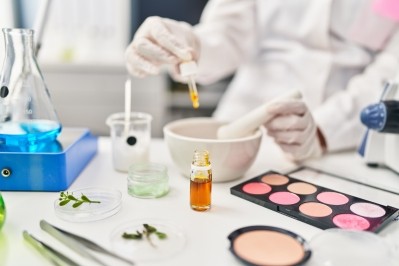


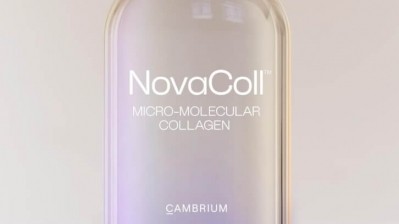

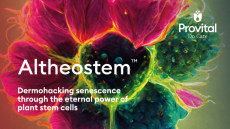
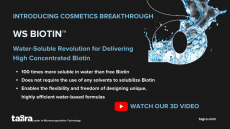



![Chinese study highlights mental health challenges in atopic dermatitis, emphasising holistic patient care. [Getty Images]](https://www.cosmeticsdesign-europe.com/var/wrbm_gb_food_pharma/storage/images/_aliases/wrbm_tiny/publications/cosmetics/cosmeticsdesign-asia.com/headlines/formulation-science/chinese-research-linking-atopic-dermatitis-to-mental-health-underscores-need-for-holistic-care/17040623-1-eng-GB/Chinese-research-linking-atopic-dermatitis-to-mental-health-underscores-need-for-holistic-care.jpg)








